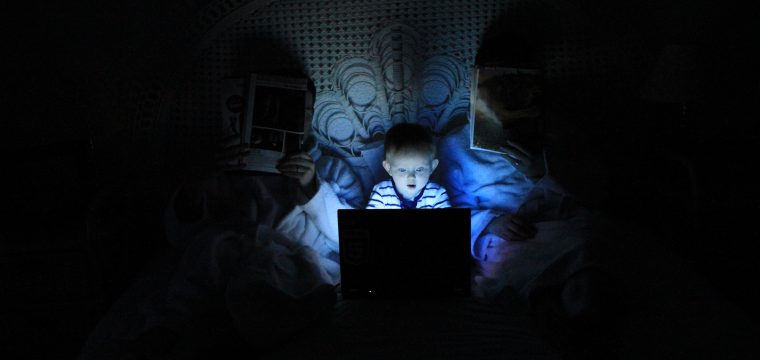Children today are growing up in an era unlike any other — they’ve never known a time without the internet, streaming services, social media, and more. The average child spends roughly 3.5 hours online each day. While the ability to research topics instantly, complete homework online and talk to friends around the globe is phenomenal in some aspects, there are definitely some downsides. Rates of suicide and depression in children and teens are higher than ever before, attention spans are dwindling and cyberbullying is a pressing issue many kids face on a daily basis, but what does the data say about online safety as it pertains to children?
If your child has access to the internet, you should be well-versed on the dangers and potential problems it can pose.
Is the Internet Safe for Kids?
Most kids can find their way around a tablet or mobile device without any help from mom or dad. It’s an easy way for parents to entertain their kids if they’re in the car, at a restaurant, or if they just need some quiet time for themselves. It’s rare to find a child who isn’t already surfing the web by first grade. The question remains though: is it safe?
Many studies have shown that increased use of tablets and smartphones can cause depression and other mental health issues. “Internet addiction.” a term coined in 1998, is defined as an impulse control issue. Its symptoms include everything from a shorter attention span, poor planning skills, and a lack of control. But mental health isn’t the only concern.
The presence of cyberbullies and predators is another issue. A recent study reported 36.5 % of kids under the age of 18 have experienced cyberbullying while an overwhelming 87 percent said they have witnessed it at one point or another.
With online multiplayer games like Fortnite and Roblox rising in popularity, this is a breeding ground for predatory and cyberbullying behavior. If you aren’t constantly aware of what your kids are doing online, games like this can be dangerous without parental supervision. Online bullying isn’t just relegated to children and young adults tossing insults around at each other, either. Cyberbullying is known to have long-lasting effects by damaging.
Of course, with the right supervision and adults who are knowledgeable in things like online learning and games, the internet isn’t just a place of doom and gloom. The bottom line is you have to know what your child is doing online and do your research. If we aren’t educated about the risks the internet poses, how can we expect our kids to be?
Not a Job Strictly for Parents
While the safety of children online is a job where parents do the majority of the work, there are other adults who are great assets and can help. These days it’s common for parents to not be aware of a bullying issue online or in real life because the child thinks they can handle the problem on their own. Plus, it’s common for other the other adults in your children’s lives, such as teachers, doctors, or therapists, to see a different side of your kids.
Teachers, doctors, and those who counsel families on health issues often have a different view into your children’s world. Plus, as issues with online safety become more prominent each year, it’s often these adults who can help parents learn more about how to handle the problems and what they can do to avoid them. School systems typically try to keep teachers and educators up to date on the latest trends and that includes everything from social media challenges to YouTube videos to, you guessed it, cyberbullying.
Cyberbullying is a Worldwide Problem
It might seem that cyberbullying is only a concern for those unfortunate enough to have to live through middle school and high school in a time when social media is so prevalent, but currently, the world’s awareness of the issue is at 75 percent. The truth of the matter is that cyberbullying is a serious public health issue that doesn’t appear to be going away anytime soon.
It’s important to study the health of the subpopulation of teens and children. Population health studies can provide both parents and healthcare providers with action plans to protect the health of children of all ages. This includes studying the effects of cyberbullying on the mental or physical health of children, especially tweens and teens. Zero-tolerance laws and policies are proving effective in combatting this trend, and its statistical research that helps their formation.
No matter how these problems evolve over the next few years, it’s safe to say that technology has a foot planted firmly in everyone’s lives. While it does have some downsides, with proper supervision, education, and care, our children can enjoy it and reap the educational benefits it provides.

Leave a Reply
You must be logged in to post a comment.